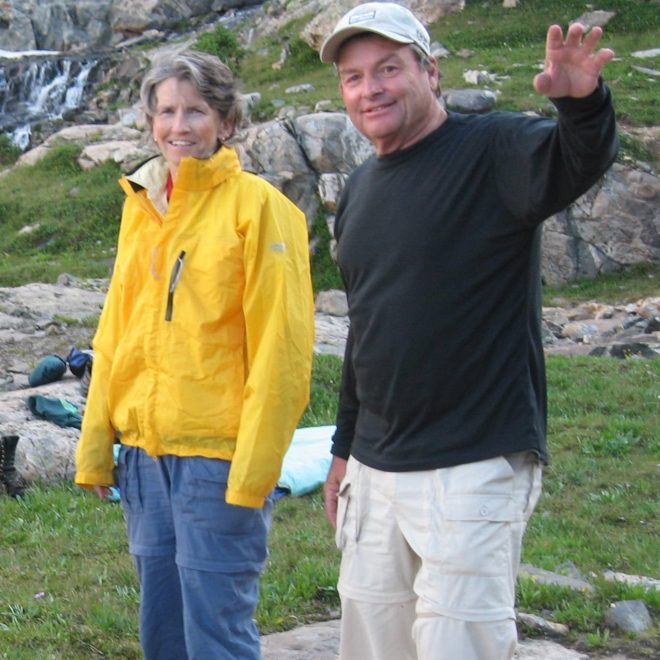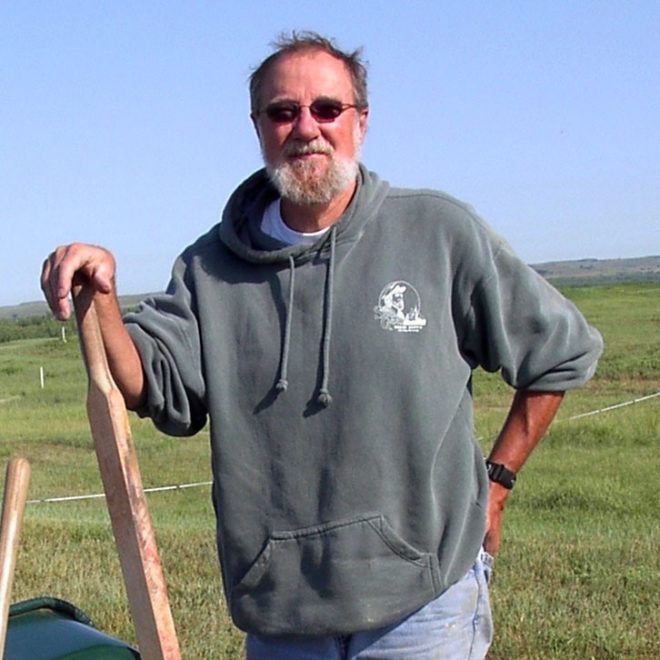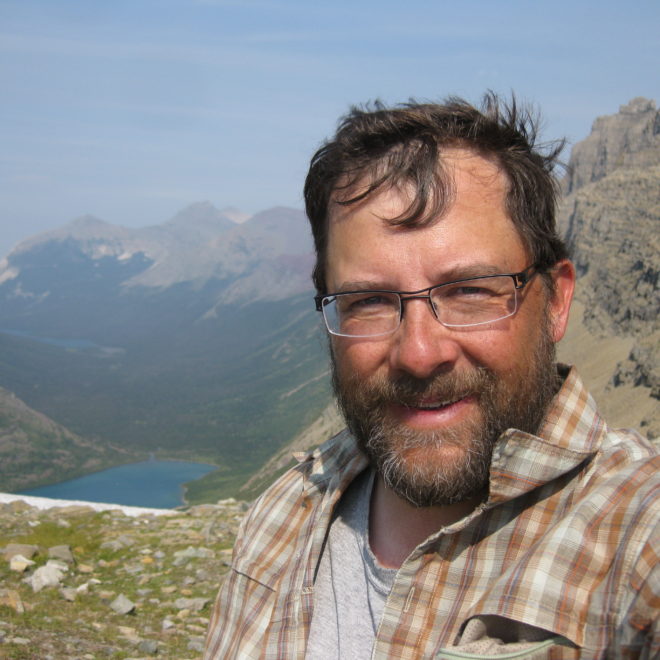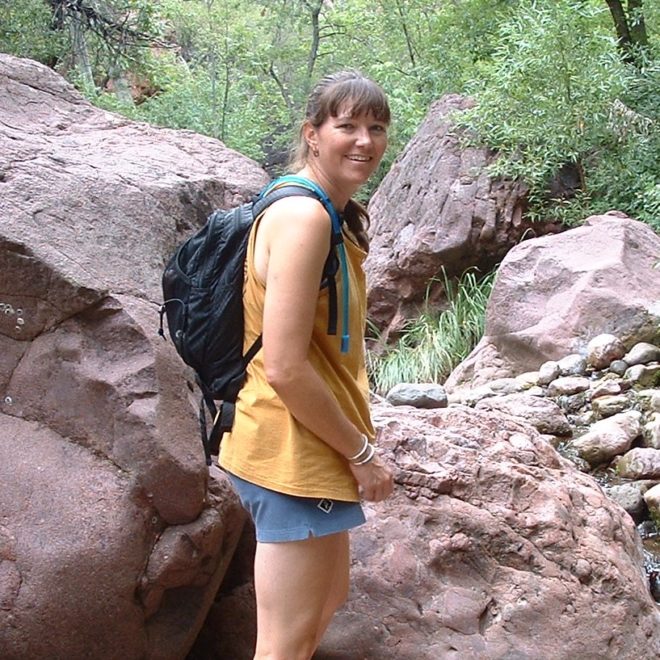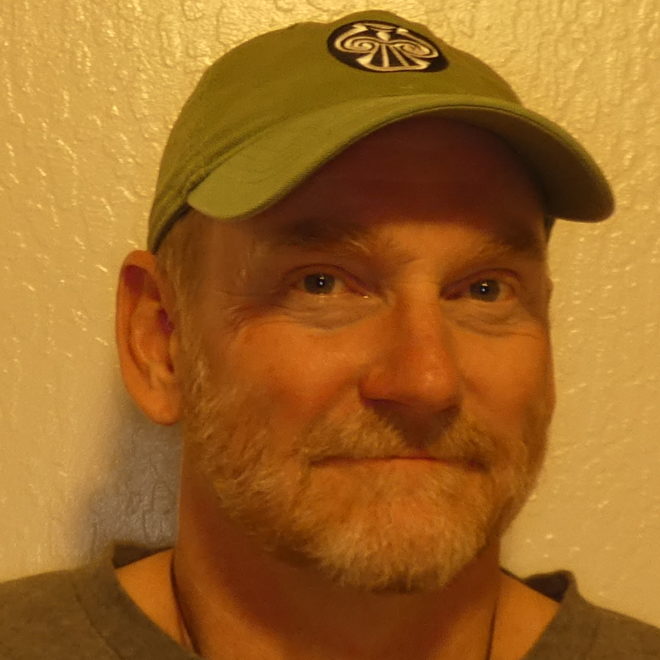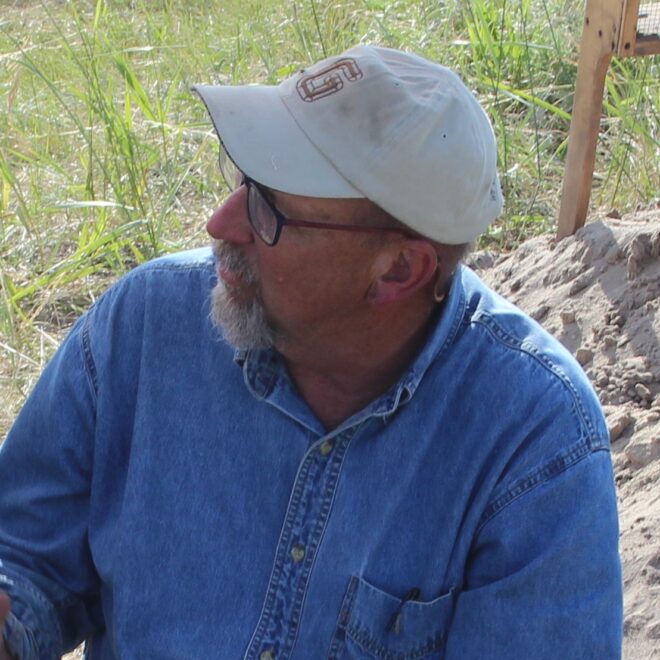About PCRG
Paleocultural Research Group is a member-supported, 501(c)(3) nonprofit that conducts scientific research, trains students, and educates the public on the archaeology of the Great Plains and Southern Rocky Mountains. PCRG’s public archaeology projects use state-of-the-art field and lab techniques to study human communities and their relationships to the natural environment, from North America’s earliest Native American inhabitants to nineteenth-century traders and settlers. PCRG broadly disseminates the findings of its projects to professional and public audiences, raising awareness of Plains and Rocky Mountains archaeology and fostering preservation of the unmatched archaeological resources those regions contain.
Founded in 1996, PCRG maintains long-term partnerships with a diverse mix of federal agencies, state agencies, and universities. PCRG members, research affiliates, and staff are experienced in the design and implementation of cooperative research and education programs featuring extensive public involvement. PCRG public archaeology projects have taken place in Colorado, Wyoming, North Dakota, Nebraska, Arizona, and Texas. PCRG staff have developed interpretive signs, exhibits, and public school curricula and presented public lectures on the organization’s work in a variety of settings. PCRG also trains undergraduate and graduate anthropology students in archaeological field and lab methods.
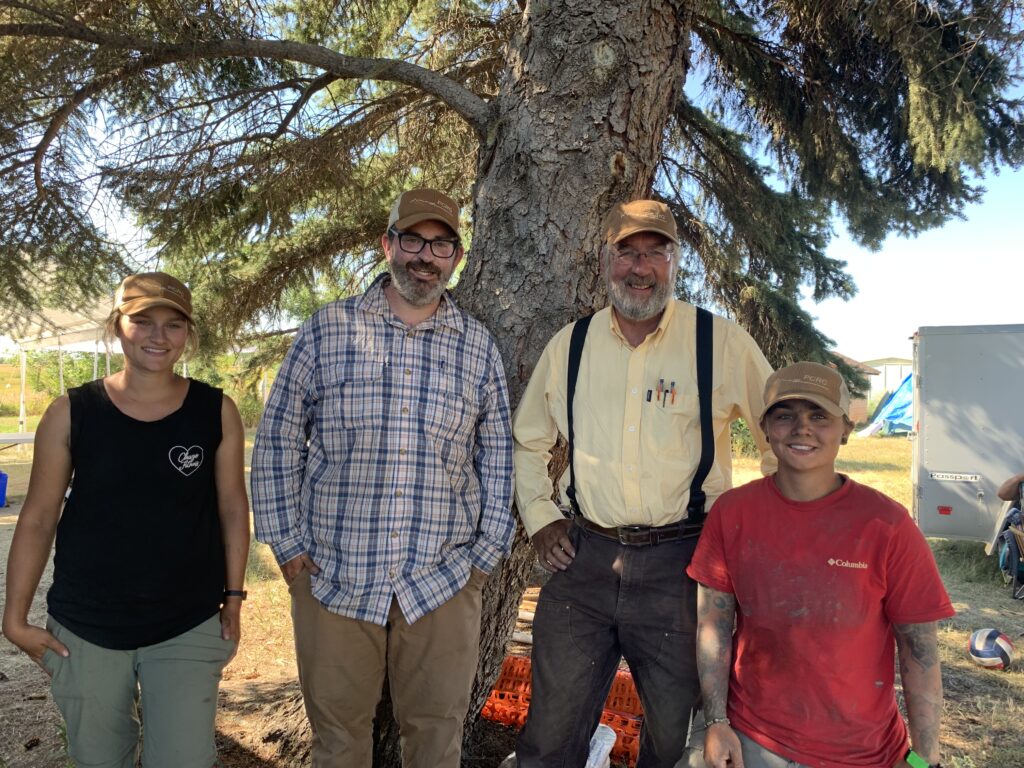
Research Staff
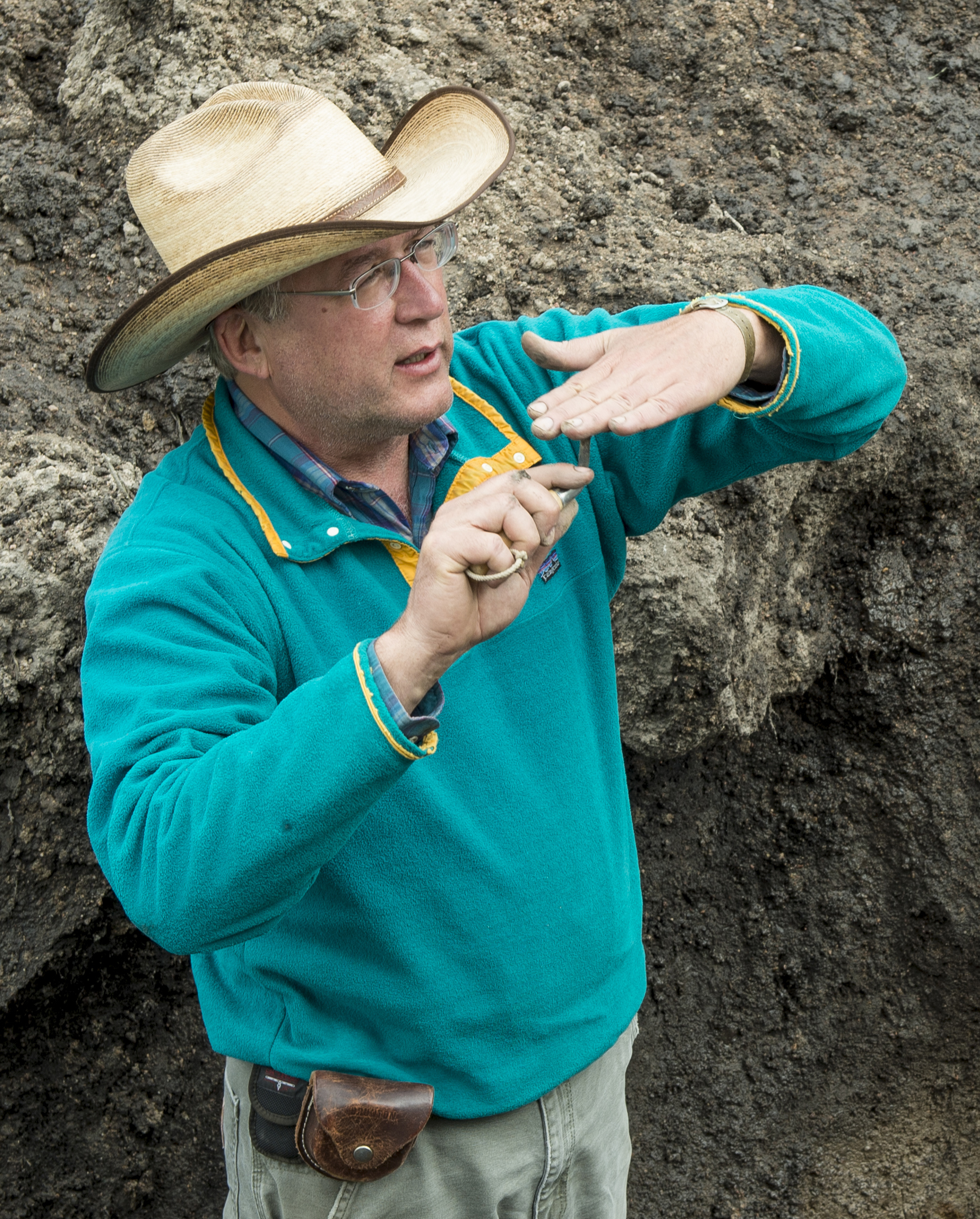
Mark Mitchell, Ph.D.
Research Director
Dr. Mark D. Mitchell is PCRG’s Research Director. Previously, he worked for several cultural resource management firms and for the USDA Forest Service in Colorado, Wyoming, and Kansas. Mitchell holds a Ph.D. in Anthropology from the University of Colorado at Boulder and has more than 35 years of experience in archaeological field and laboratory research. His interests span the archaeology of two different regions: the Northern Great Plains in central and western North Dakota and the Southern Rocky Mountains in Colorado and New Mexico. Mitchell’s Southern Rockies research focuses on American Indian land use in the San Luis Valley and adjacent mountains. His Northern Plains research focuses on the political and economic development of post-A.D. 1200 farming villages of the Missouri River valley. He also studies historic American Indian rock art and the history of archaeology. His research has appeared in Quaternary International, Plains Anthropologist, Antiquity, American Antiquity, Southwestern Lore, Colorado Archaeology, and in a number of book chapters. He is the author of Crafting History in the Northern Plains: A Political Economy of the Heart River Region, 1400-1750 (University of Arizona Press, 2013) and co-edited Across a Great Divide: Continuity and Change in Native North American Societies, 1400–1900 (University of Arizona Press, 2010).
Chris Johnston, MA
Operations Director
Chris began his professional career as a work-study student in the PCRG lab while an undergraduate at the University of Colorado, Boulder, and also has worked in cultural resource management and for the USDA Forest Service. He went on to earn his Master's degree from Colorado State University. His thesis research focused on communal bison hunting in northern Colorado at the Roberts Ranch Buffalo Jump. After graduate school, Chris returned to PCRG running multiple volunteer projects. In 2016, Chris became the Assistant State Archaeologist of Colorado where he managed the statewide permit system and was the coordinator and lead instructor for the Program for Avocational Archaeological Certification. In 2018, Chris returned to PCRG to become the Operations Director and a Project Archaeologist. Chris has authored numerous technical reports and was the co-editor of The Lithic Caches of Colorado, an edited volume published in Southwestern Lore in 2016.
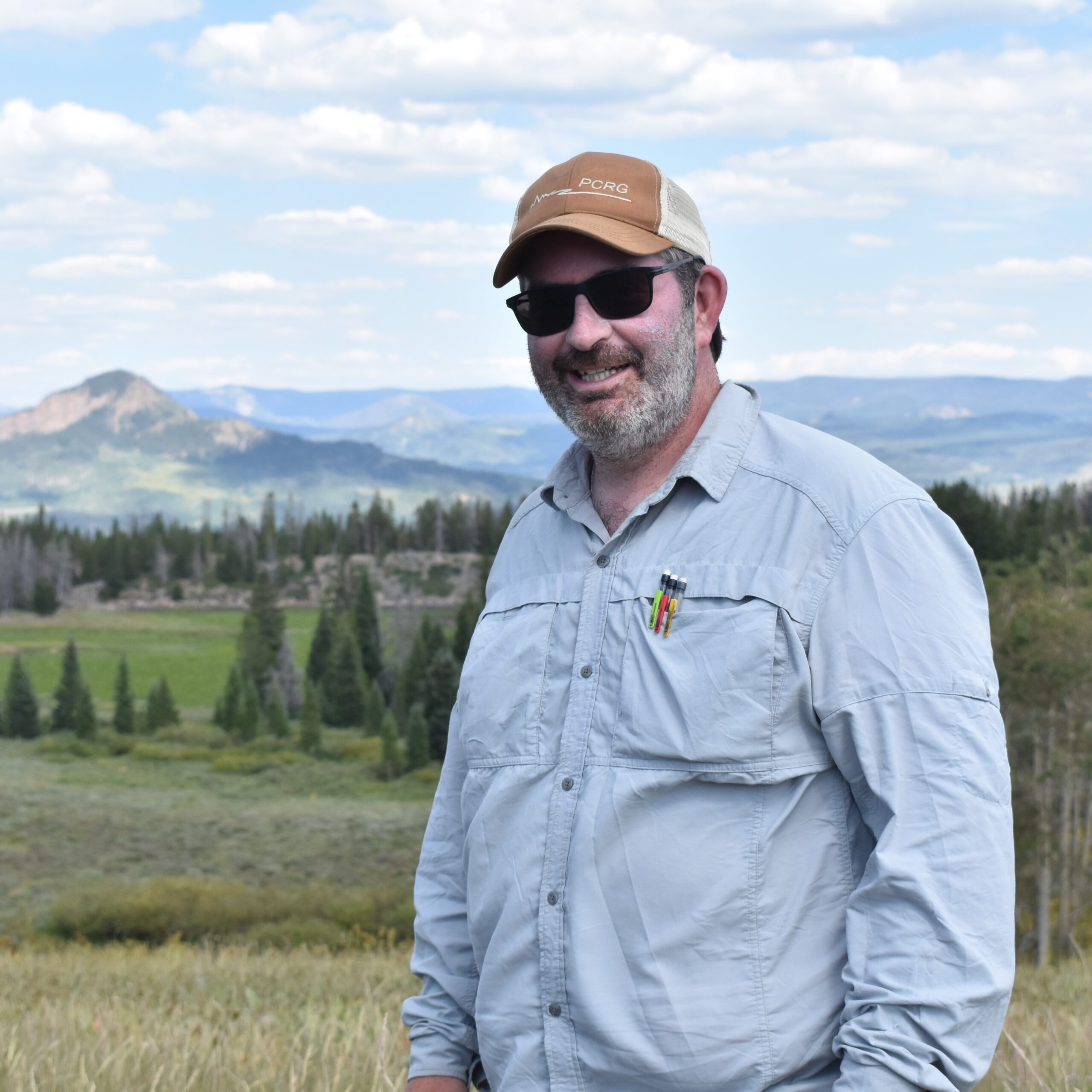
Board of Directors
Research Affiliates
Carl Falk (M.A., University of Missouri, 1970) is a co-founder of PCRG. He has 55 years of professional experience with a primary interest in the Great Plains and a specialization in the archaeology and zooarchaeology of Late Prehistoric period village horticulturalists living in the Middle Missouri and Central Plains subareas.
Richard Wilshusen (Ph.D., University of Colorado, 1991) has 35 years of experience as a field archaeologist, professor, curator, and contractor. He is best known for his research on the Neolithic demographic transition, early Pueblo village formation, Southwestern migration pathways, early great house communities, and Navajo ethnogenesis.
Marilyn Martorano (M.A., Colorado State University, 1981) has studied the archaeology of the San Luis Valley for more than 35 and is a regional leader in both research and cultural resources management. Martorano also has extensive experience in cultural resources planning and has prepared numerous National Register of Historic Places and National Historic Landmark nominations.
Amy Nelson (M.A., Saint Cloud State University, In Progress) has spent over 15 years conducting archaeological projects across the Mountain West for contracting firms and with PCRG. Amy began working for PCRG in 2016 as a Project Archaeologist.
Rolfe Mandel (Ph.D., University of Kansas, 1991), is Senior Scientist and Executive Director of the Odyssey Geoarchaeological Research Program, Kansas Geological Survey. Mandel has worked with archaeologists through the United States for more than 30 years and is an expert on landscape evolution and the effects of geologic processes on the archaeological record.
Ken Kvamme (Ph.D., University of California Santa Barbara, 1983) is a Professor of Anthropology at the University of Arkansas. His research interests include archaeological applications of geophysics, remote sensing, GIS technology, and quantitative methods. Kvamme has 18 years of experience in geomagnetic, electrical resistivity, electromagnetic induction, and ground-penetrating radar surveys.
Charles Haecker (M.A., Eastern New Mexico University, 1976) retired as a National Park Service archaeologist in 2016. As a specialist in historic archaeology with an emphasis on military-related sites, Haecker has conducted, or has participated in, over 45 metal detection survey projects on sites dating from the A.D. 1500s to 1800s.
Peter Brown (Ph.D., Colorado State University, 2003) is Director of Rocky Mountain Tree-Ring Research, Inc., a nonprofit research organization specializing in fire and forest history and climatology.
Our Partners
- National Science Foundation
- National Park Service
- Bureau of Land Management
- U.S. Forest Service
- History Colorado - State Historical Fund
- State Historical Society of North Dakota
- University of Colorado - Denver
- University of Colorado - Boulder
- Colorado State University Department of Anthropology
- Douglas County
- Sangre de Cristo National Heritage Area
- Northern Plains National Heritage Area
- South Park National Heritage Area
- University of Arkansas Department of Anthropology
- Oklahoma State University Department of Sociology
- University of Colorado Department of Anthropology
- Minnesota State University - Moorhead Department of Anthropology and Earth Science
- Rocky Mountain Tree-Ring Research
- Colorado State Land Board
- RMC Consultants, Inc.
- Colorado Parks and Wildlife
- Metcalf Archaeological Consultants, Inc.
- Alpine Archaeological Consultants, Inc.
- Colorado Council of Professional Archaeologists
- Colorado Archaeological Society
- Denver Museum of Nature and Science
- Mandan Hidatsa Arikara Nation
- National Trust for Historic Preservation
- University of Missouri Department of Anthropology
- University of Kansas Department of Anthropology
- Univesity of Colorado Institute for Arctic and Alpine Research
- North Dakota Department of Transportation
- Northern Arizona University
- Martorano Consultants, LLC
- Bismarck Parks and Recreation District
- Kansas Geological Survey
- Buffalo State College Department of Geography and Planning
- Eastern Oregon University Department of Anthropology and Sociology
- U.S. Geological Survey
- University of Colorado Department of Geography and Environmental Science
- North Dakota Archaeological Association
- Colorado College Department of Anthropology

